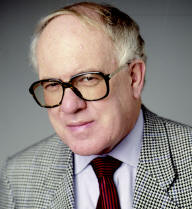The Editor's View August 06
Magazine

John Jenkins' monthly column from Writers' Forum magazine
Mainline author chooses to self-publish
. . . what price originality?
. . . hit the what-if button for ideas
DAY BY DAY self-publishing improves. The books are frequently indistinguishable from mainline publishers and the quality of the writing, particularly when authors have had their work professionally edited, has reached new standards.
We are happy to be associated with this improvement and to report the progress and success of many authors who have gone on to greater success after having the courage and determination to self-publish.
What is most unusual, however, is a successful mainline author with seven books to her credit who has opted to self publish.
Helen Hollick is to be congratulated on her reasons - she wanted to write her latest story her way, in her style and not change it to suit others.
She was not interested in turning her pirate Captain Jesamiah into a suitable person for "young adults."
"He’s too big and bold for a more censored story," said Helen. "His adventures are adult, for he is very much a loveable rogue of a pirate."
Long may his creator share his piratical tendencies.
* * *
WHILE musing over the 1910 edition of the Writers’ & Artists’ Yearbook I remembered not only some wonderful British magazines which were no more but also some excellent American publications, including the Saturday Evening Post, which had folded. The Post was founded in 1821 and it stumbled along until 1897 when it was sold for a miserly $1,000.
The appointment of George Lorimer transformed the picture and it became a runaway success, publishing authors like Jack London, Kipling, G K Chesterton H G Wells, Arnold Bennett and Stephen Crane. Lorimer paid top dollar for the best, which was reflected in the circulation as it soared to two million.
Lorimer met a 22-year-old artist called Norman Rockwell who offered illustrations for the cover. It was a relationship which was to last 45 years.
When President Roosevelt in 1941 addressed Congress, setting out four basic freedoms: Freedom of worship, Freedom of speech, Freedom from want and Freedom from fear Rockwell took these themes as covers for the SEP.
His paintings went on tour in the war and were seen by 1,222,000 people raising £133 million in war bonds. The Post died in September 1963.
* * *
SO Zadie Smith picks up an Orange Prize for a work based on Howard’s End by E M Forster. And Colm Toibin collects £70,000 for his book, The Master, which owes everything to the life of Henry James.. The £70,000 is the International IMPAC Dublin Literary Award and is the world’s richest price for one piece of fiction.
Hang about, as they say in TV soaps. Fiction conjures up words like originality and imagination. Fictitious extends thus: counterfeit, not genuine. I quote from the OED.
If I want to read E M Forster, who is several classes above the good Zadie, I’ll take down one from my shelf.
And if I want to read Henry James, whom I regard as a mannered and dated writer, but again several classes above the good Toibin, I will do so. And if I want a biography I know where to go.
* * *
THERE has never been a better time to be a poet.
Classes abound, books on technique proliferate and considering the number of prizes on offer there are markets a-plenty. In this issue we have listed many markets for versifiers, suitable for all ages and all levels of accomplishment.
When you take in the English-speaking world you realise how fortunate we are to have such a rich language and such a huge target audience. It is, of course, very easy to become disillusioned. To pick up a volume by one of your favourites, Shakespeare, Milton, Blake, Owen, Dylan Thomas - and despair of ever emulating them.
Write first for your own satisfaction and having achieved that move on to competitions and other markets. Everybody has to start somewhere.
* * *
IT’S A fact that crime and romance are the two biggest selling genres. Have been for years and are likely to remain so. Interesting too that they are both supported by vigorous and well run associations. The Romantic Novelists Association and The Crime Writers’ Association. If your ambition lies in crime or romance you would do well to join.
Members are generous with advice and the competitions they run inevitably go to books which are entertaining and well written.
* * *
HAVE you ever noticed that glazed-over look when an author is buttonholed at a conference and asked: Where do you get your ideas? Most are so polite that they make a non-committal reply and let the questioner down lightly.
Ideas are everywhere. From the agony aunt replies in the tabloids and weekly magazines, to the affairs of state; from the holiday advertisements to incidents which happen to you every day of your life.
Linda Daunter found a good idea for a short story from watching a television documentary on children in care. Mary Loudon found a riveting plot in her sister’s schizophrenia. Both authors tell how they manipulated the 'What if' button to make a story from these triggers.
John Jenkins, Publisher, Writers' Forum
Read the article about setting up WritersServices which was originally published in Writers' Forum magazine.
© Writers International Ltd 2006. Reproduced from Writers' Forum magazine by kind permission of the editor.
